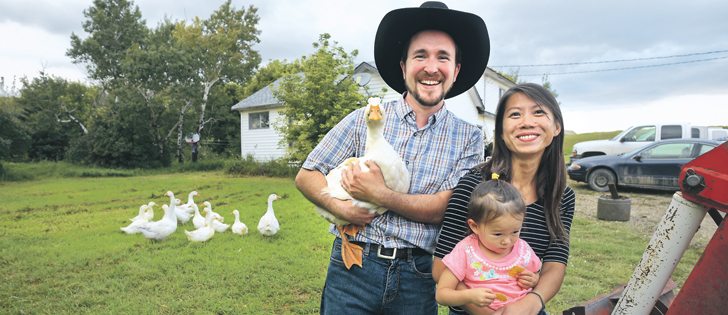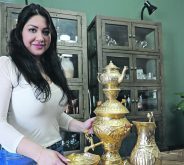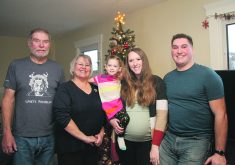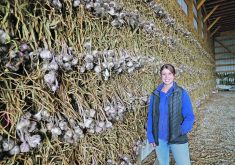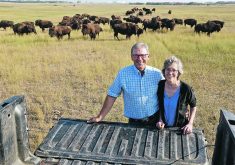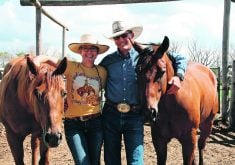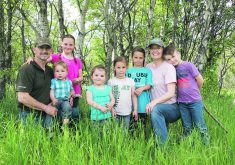A Vancouver-born boy married a Taiwan-born girl, settled in Saskatchewan and hopes to transition to organic farming
MACRORIE, Sask. — Gretchen Evans understands how the amount of personal space can shape and mould a person’s character and decisions.
She was born on the island of Taiwan and moved to Canada in 1998.
Evans knows what it’s like to live on land about the same size as Vancouver Island, but with about 24 million people and a population density of 650 inhabitants per sq. kilometre.
Today she lives in central Saskatchewan with a population of 1.8 people per sq. km.
Gretchen, her husband, Alex, and their daughter, Elise, 2, call a section of rolling farmland between Macrorie and Lucky Lake home.
Read Also
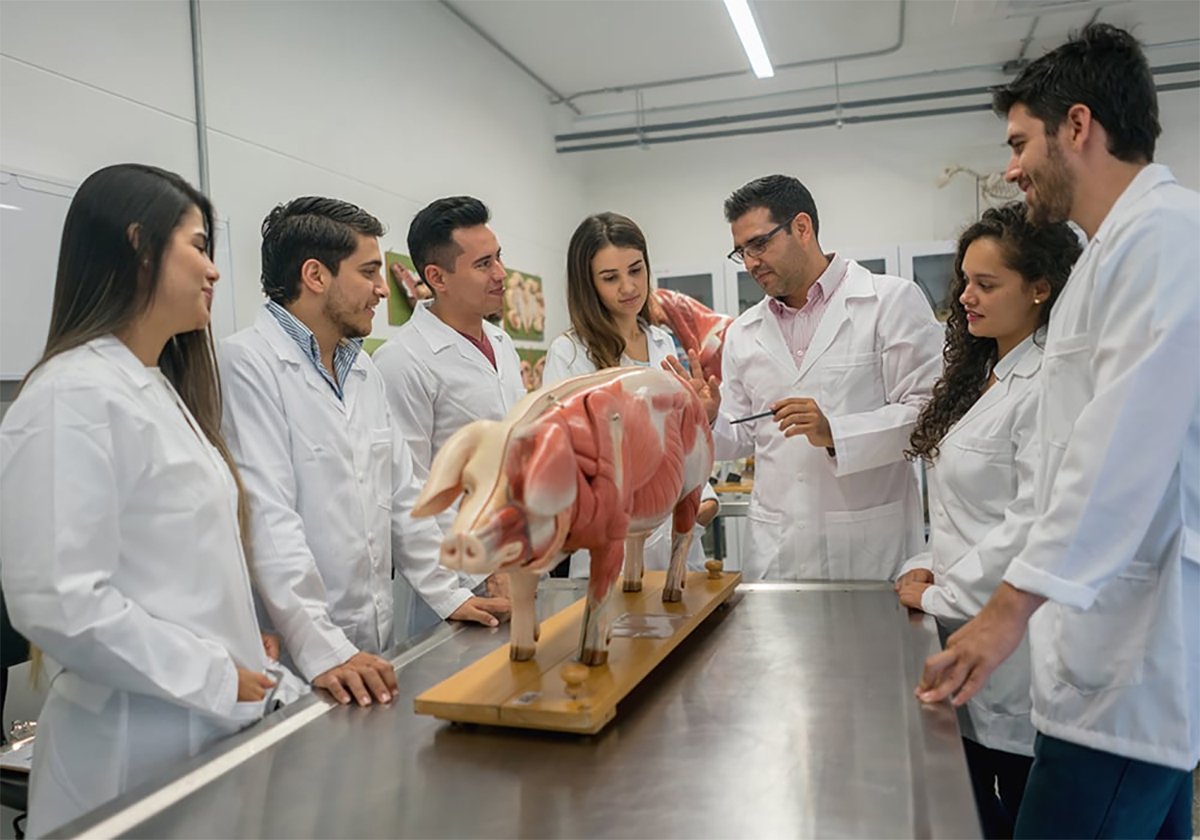
Students urged to consider veterinary medicine
Alberta government makes $86.5 million investment in University of Calgary to double capacity for its veterinary medicine program to address labour shortages in the field.
They share it with their dog, 100 sheep, four geese, nine ducks, 10 cats and 18 chickens. The chickens had free range of the place, but now occupy the family’s freezer.
“Here you don’t have exposure to that many people all the time and you have big personal space. In Taiwan, your personal distance is way closer than people here.
“It’s a physiological adjustment. Yes the physical environment changed a lot (from Taiwan) but the adjustment is in the mind,” she said.
Gretchen describes Taiwan as “a 24 hour place,” where the seasons don’t have as much impact as on the farm.
“People don’t pay as much attention to the weather because there’s so much stimulation. You can always find something to occupy yourself,” she said.
“I like the rhythm here now better. I’m more aware of myself and with nature, the season and with the land,” she said.
Alex grew up in Vancouver, but spent much of his childhood at his grandparent’s farm, fishing and camping.
“I always wanted to get out and live somewhere where there was room to breath,” said Alex, a winder electrician.
“I do wiring and controls and motors and bearings, belts and pulleys. It’s a fairly niche trade,” he said.
The idea of taking up farming took root and became more urgent while they were living and working in Alberta. The couple continued to live frugally as the oil industry declined.
“As soon as we started working, we saved all of our money in the hope of eventually buying a farm,” Gretchen said.
Added Alex: “When other guys were buying shining new trucks, I bought a farm.”
They purchased the farm in 2013 and settled in a year later.
Since the move, Alex was hired as an electrician with the Lucky Lake Irrigation District.
Gretchen keeps busy tending their flock of Canadian Arcott-Dorset cross sheep and canning preserves from a large garden.
They are in transition to a certified organic farm.
Alex, who is grateful for neighbours willing to share their knowledge about farming, is steadily building up an inventory of used farm equipment.
“There’s a lot of things sitting in junk piles, sitting at auction sales that nobody wants,” he said.
“You’re going to get these things for almost nothing but you also get what you pay for.”
His work horse of the farm is a 35 horsepower International B275 tractor built in 1960, which is used for raking hay, feeding bales, cleaning manure and general loader jobs.
“It ran and started well and didn’t smoke and that’s good for an old tractor,” Alex said.
A 1978 150 h.p. Deutz DX160 tractor is used for the round baler and fieldwork.
“Most of them are in the scrap heap now. Ours is probably the only one still running in Western Canada,” he said.
Other acquisitions of a similar vintage include a square baler, swather, combine and set of discs.
Other than those tractors, every piece of equipment has been bought for less than $500, Alex said.
“Luckily when I got my start in the trade, I worked out of a small shop that wasn’t too different from a farm shop. We did a lot of making do and making it work and fabricating custom tools to get the job done,” he said.
When the industry in Calgary was going downhill, he felt farming was a good fit for someone with mechanical skills.
“I thought I already know how to keep all this stuff running. I might as well farm myself because I know how much it costs to hire a guy like myself to keep it all running.
“It’s not necessarily what you make but what you save and the savings are tremendous if you can maintain old equipment,” said Alex.


